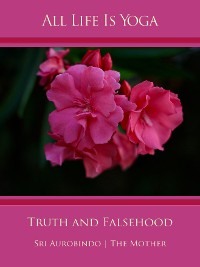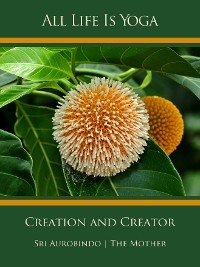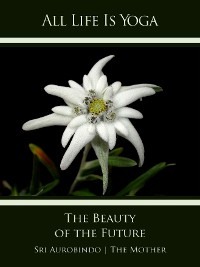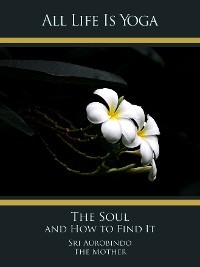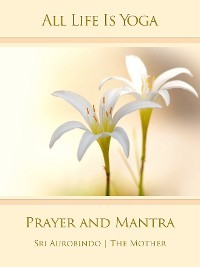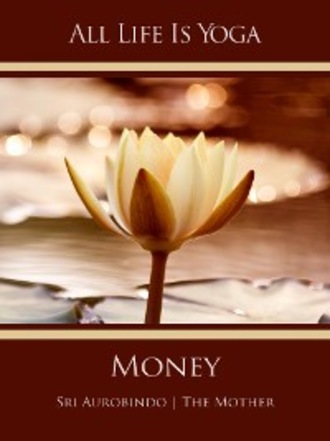
Полная версия
All Life Is Yoga: Money
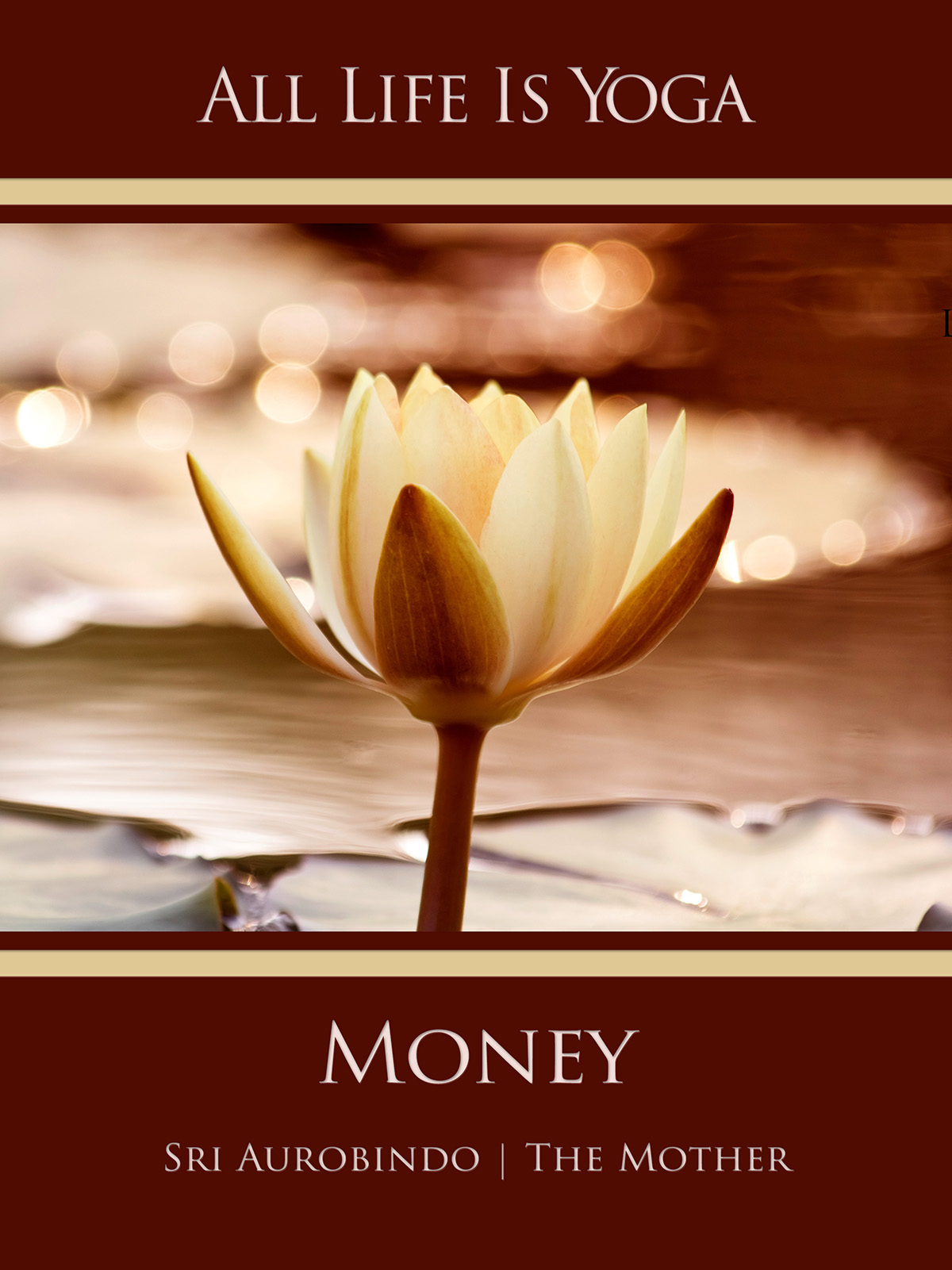

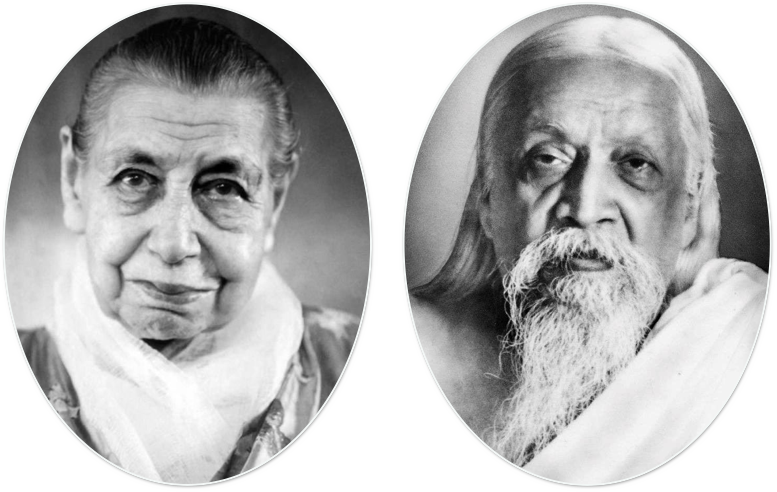
Omsriaurobindomira
All
Life
Is
Yoga
“All life is Yoga.” – Sri Aurobindo
Money
Sri Aurobindo | The Mother

SRI AUROBINDO
DIGITAL EDITION

Copyright 2019
AURO MEDIA
Verlag und Fachbuchhandel
Wilfried Schuh
www.auro.media
eBook Design

SRI AUROBINDO DIGITAL EDITION
Germany, Berchtesgaden
ALL LIFE IS YOGA
Money Selections from the Works of Sri Aurobindo and the Mother First edition 2019 ISBN 978-3-96387-050-7
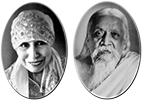
© Photos and selections of the works of Sri Aurobindo and the Mother:
Sri Aurobindo Ashram Trust
Puducherry, India

Flower on the cover:
Nymphaea. Many colours. Spiritual significance and explanation given by the Mother: Wealth True wealth is the wealth that one offers to the Divine.
Publisher’s Note
This is one in a series of some e-books created by SRI AUROBINDO DIGITAL EDITION and published by AURO MEDIA under the title All Life Is Yoga. Our effort is to bring together, from Sri Aurobindo and the Mother, simple passages with a practical orientation on specific subjects, so that everyone may feel free to choose a book according to his inner need. The topics cover the whole field of human activity, because true spirituality is not the rejection of life but the art of perfecting life.
While the passages from Sri Aurobindo are in the original English, most of the passages from the Mother (selections from her talks and writings) are translations from the original French. We must also bear in mind that the excerpts have been taken out of their original context and that a compilation, in its very nature, is likely to have a personal and subjective approach. A sincere attempt, however, has been made to be faithful to the vision of Sri Aurobindo and the Mother. These excerpts are by no means exhaustive.
Bringing out a compilation from the writings of Sri Aurobindo and the Mother, which have a profound depth and wideness unique, is a difficult task. The compiler’s subjective tilt and preferences generally result in highlighting some aspects of the issues concerned while the rest is by no means less significant. Also without contexts of the excerpts the passages reproduced may not fully convey the idea – or may be misunderstood or may reduce a comprehensive truth into what could appear like a fixed principle.
The reader may keep in mind this inherent limitation of compilations; compilations are however helpful in providing an introduction to the subject in a handy format. They also give the readers a direct and practical feel of some of the profound issues and sometimes a mantric appeal, musing on which can change one’s entire attitude to them.
The excerpts from the writings of Sri Aurobindo and the Mother carry titles and captions chosen by the editor, highlighting the theme of the excerpts and, whenever possible, borrowing a phrase from the text itself. The sources of the excerpts are given at the end of each issue.
We hope these compilations will inspire the readers to go to the complete works of Sri Aurobindo and the Mother and will help them to mould their lives and their environments towards an ever greater perfection.
“True spirituality is not to renounce life, but to make life perfect with a Divine Perfection.” – The Mother
* * *
ContentsTitle PageCopyrightPublisher’s NoteQuotationsMONEY1. Money and Commercialism2. The Money-Force – Nature and Value3. Money in Right and Wrong Hands4. Money – The True Attitude5. Asceticism and Poverty not our Ideal6. Business and Spirituality7. Handling the Force of Money – Mother’s SuggestionsAPPENDIXReferencesGuideCoverTable of ContentsStart Reading
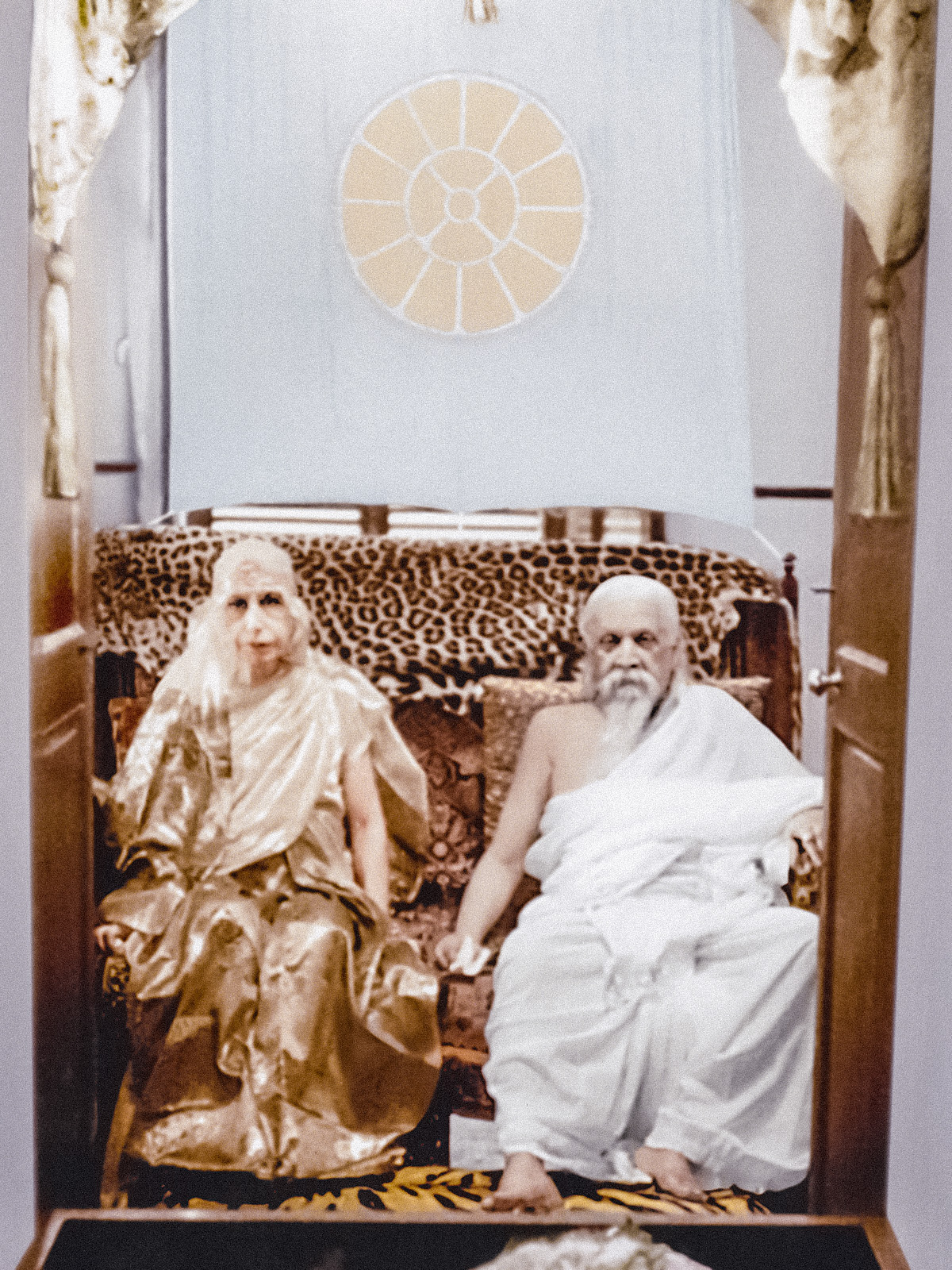
The Mother – Sri Aurobindo
Money represents a great power of life which must be conquered for divine uses. Therefore you must have no attachment to it but also no disgust or horror of it. – Sri Aurobindo
It is to the Divine that all riches belong. It is the Divine who lends them to living beings, and it is to Him that they must naturally return. – The Mother
* * *
Chapter 1
Money and Commercialism
Words of Sri Aurobindo
But if Science has thus prepared us for an age of wider and deeper culture and if in spite of and even partly by its materialism it has rendered impossible the return of the true materialism, that of the barbarian mentality, it has encouraged more or less indirectly both by its attitude to life and its discoveries another kind of barbarism, – for it can be called by no other name, – that of the industrial, the commercial, the economic age which is now progressing to its culmination and its close. This economic barbarism is essentially that of the vital man who mistakes the vital being for the self and accepts its satisfaction as the first aim of life. The characteristic of Life is desire and the instinct of possession. Just as the physical barbarian makes the excellence of the body and the development of physical force, health and prowess his standard and aim, so the vitalistic or economic barbarian makes the satisfaction of wants and desires and the accumulation of possessions his standard and aim. His ideal man is not the cultured or noble or thoughtful or moral or religious, but the successful man. To arrive, to succeed, to produce, to accumulate, to possess is his existence. The accumulation of wealth and more wealth, the adding of possessions to possessions, opulence, show, pleasure, a cumbrous inartistic luxury, a plethora of conveniences, life devoid of beauty and nobility, religion vulgarised or coldly formalised, politics and government turned into a trade and profession, enjoyment itself made a business, this is commercialism. To the natural unredeemed economic man beauty is a thing otiose or a nuisance, art and poetry a frivolity or an ostentation and a means of advertisement. His idea of civilisation is comfort, his idea of morals social respectability, his idea of politics the encouragement of industry, the opening of markets, exploitation and trade following the flag, his idea of religion at best a pietistic formalism or the satisfaction of certain vitalistic emotions. He values education for its utility in fitting a man for success in a competitive or, it may be, a socialised industrial existence, science for the useful inventions and knowledge, the comforts, conveniences, machinery of production with which it arms him, its power for organisation, regulation, stimulus to production. The opulent plutocrat and the successful mammoth capitalist and organiser of industry are the supermen of the commercial age and the true, if often occult rulers of its society.
The essential barbarism of all this is its pursuit of vital success, satisfaction, productiveness, accumulation, possession, enjoyment, comfort, convenience for their own sake. The vital part of the being is an element in the integral human existence as much as the physical part; it has its place but must not exceed its place. A full and well-appointed life is desirable for man living in society, but on condition that it is also a true and beautiful life. Neither the life nor the body exist for their own sake, but as vehicle and instrument of a good higher than their own. They must be subordinated to the superior needs of the mental being, chastened and purified by a greater law of truth, good and beauty before they can take their proper place in the integrality of human perfection. Therefore in a commercial age with its ideal, vulgar and barbarous, of success, vitalistic satisfaction, productiveness and possession the soul of man may linger a while for certain gains and experiences, but cannot permanently rest. If it persisted too long, Life would become clogged and perish of its own plethora or burst in its straining to a gross expansion. Like the too massive Titan it will collapse by its own mass, mole ruet sua.
*
..........
Chapter 2
The Money-Force – Nature and Value
Words of Sri Aurobindo
Money is the visible sign of a universal force, and this force in its manifestation on earth works on the vital and physical planes and is indispensable to the fullness of the outer life. In its origin and its true action it belongs to the Divine. But like other powers of the Divine it is delegated here and in the ignorance of the lower Nature can be usurped for the uses of the ego or held by Asuric influences and perverted to their purpose. This is indeed one of the three forces – power, wealth, sex – that have the strongest attraction for the human ego and the Asura and are most generally misheld and misused by those who retain them. The seekers or keepers of wealth are more often possessed rather than its possessors; few escape entirely a certain distorting influence stamped on it by its long seizure and perversion by the Asura. For this reason most spiritual disciplines insist on a complete self-control, detachment and renunciation of all bondage to wealth and of all personal and egoistic desire for its possession. Some even put a ban on money and riches and proclaim poverty and bareness of life as the only spiritual condition. But this is an error; it leaves the power in the hands of the hostile forces. To reconquer it for the Divine to whom it belongs and use it divinely for the divine life is the supramental way for the Sadhaka.
*
..........
Chapter 3
Money in Right and Wrong Hands
Words of the Mother
The power of money is at present under the influence or in the hands of the forces and beings of the vital world. It is because of this influence that you never see money going in any considerable amount to the cause of Truth. Always it goes astray, because it is in the clutch of the hostile forces and is one of the principal means by which they keep their grip upon the earth. The hold of the hostile forces upon money-power is powerfully, completely and thoroughly organised and to extract anything out of this compact organisation is a most difficult task. Each time that you try to draw a little of this money away from its present custodians, you have to undertake a fierce battle.
And yet one signal victory somewhere over the adverse forces that have the hold upon money would make victory possible simultaneously and automatically at all other points also. If in one place they yielded, all who now feel that they cannot give money to the cause of Truth would suddenly experience a great and intense desire to give. It is not that those rich men who are more or less toys and instruments in the hands of the vital forces are averse to spend; their avarice is awake only when the vital desires and impulses are not touched. For when it is to gratify some desire that they call their own, they spend readily; but when they are called to share their ease and the benefits of their wealth with others, then they find it hard to part with their money. The vital power controlling money is like a guardian who keeps his wealth in a big safe always tightly closed. Each time the people who are in its grasp are asked to part with their money, they put all sorts of careful questions before they will consent to open their purses even a very little way; but if a vital impulse arises in them with its demand, the guardian is happy to open wide the coffer and money flows out freely. Commonly, the vital desires he obeys are connected with the sex impulses, but very often too he yields to the desire for fame and consideration, the desire for food or any other desire that is on the same vital level; whatever does not belong to this category is closely questioned and scrutinised, grudgingly admitted and most often refused help in the end. In those who are slaves of vital beings, the desire for truth and light and spiritual achievement, even if it at all touches them, cannot balance the desire for money. To win money from their hands for the Divine means to fight the devil out of them; you have first to conquer or convert the vital being whom they serve, and it is not an easy task.
*
..........
Chapter 4
Money – The True Attitude
Words of Sri Aurobindo
You must neither turn with an ascetic shrinking from the money power, the means it gives and the objects it brings, nor cherish a rajasic attachment to them or a spirit of enslaving self-indulgence in their gratifications. Regard wealth simply as a power to be won back for the Mother and placed at her service.
..........
Chapter 5
Asceticism and Poverty not our Ideal
Words of Sri Aurobindo
There is of course also the ascetic ideal which is necessary for many and has its place in the spiritual order. I would myself say that no man can be spiritually complete if he cannot live ascetically or follow a life as bare as the barest anchorite’s. Obviously, greed for wealth and money-making has to be absent from his nature as much as greed for food or any other greed and all attachment to these things must be renounced from his consciousness. But I do not regard the ascetic way of living as indispensable to spiritual perfection or as identical with it. There is the way of spiritual self-mastery and the way of spiritual self-giving and surrender to the Divine, abandoning ego and desire even in the midst of action or of any kind of work or all kinds of work demanded from us by the Divine. If it were not so, there would not have been great spiritual men like Janaka or Vidura in India and even there would have been no Krishna or else Krishna would have been not the Lord of Brindavan and Mathura and Dwarka or a prince and warrior or the charioteer of Kurukshetra, but only one more great anchorite. The Indian scriptures and Indian tradition, in the Mahabharata and elsewhere, make room both for the spirituality of the renunciation of life and for the spiritual life of action. One cannot say that one only is the Indian tradition and that the acceptance of life and works of all kinds, sarvakarmani, is un-Indian, European or Western and unspiritual.
*
..........
Chapter 6
Business and Spirituality
Words of Sri Aurobindo
I may say however that I do not regard business as something evil or tainted, any more than it was so regarded in ancient spiritual India. If I did, I would not be able to receive money from X or from those of our disciples who in Bombay trade with East Africa; nor could we then encourage them to go on with their work but would have to tell them to throw it up and attend to their spiritual progress alone. How are we to reconcile X’s seeking after spiritual light and his mill? Ought I not to tell him to leave his mill to itself and to the devil and go into some Ashram to meditate? Even if I myself had had the command to do business as I had the command to do politics I would have done it without the least spiritual or moral compunction. All depends on the spirit in which a thing is done, the principle on which it is built and use to which it is turned. I have done politics and the most violent kind of revolutionary politics, ghoram karma, and I have supported war and sent men to it, even though politics is not always or often a very clean occupation nor can war be called a spiritual line of action. But Krishna calls upon Arjuna to carry on war of the most terrible kind and by his example encourage men to do every kind of human work, sarvakarmani. Do you contend that Krishna was an unspiritual man and that his advice to Arjuna was mistaken or wrong in principle? Krishna goes farther and declares that a man by doing in the right way and in the right spirit the work dictated to him by his fundamental nature, temperament and capacity and according to his and its dharma can move towards the Divine. He validates the function and dharma of the Vaishya as well as of the Brahmin and Kshatriya. It is in his view quite possible for a man to do business and make money and earn profits and yet be a spiritual man, practise Yoga, have an inner life. The Gita is constantly justifying works as a means of spiritual salvation and enjoining a Yoga of works as well as of Bhakti and Knowledge. Krishna, however, superimposes a higher law also that work must be done without desire, without attachment to any fruit or reward, without any egoistic attitude or motive, as an offering or sacrifice to the Divine. This is the traditional Indian attitude towards these things, that all work can be done if it is done according to the dharma and, if it is rightly done, it does not prevent the approach to the Divine or the access to spiritual knowledge and the spiritual life.
*
..........
Chapter 7
Handling the Force of Money – Mother’s Suggestions
Generosity
All that you call either qualities or defects are always a deformation of something which is behind, and which is neither this nor that but something else. But I say, moreover, what truth is found behind generosity: it is the movement of the spreading forces. But in order that these forces may spread, they must first become concentrated. So there is a sort of movement of pulsation: the forces are concentrated, then they spread, and then they are again concentrated and again spread .... But if you always want to spread out without ever concentrating, after a certain time you have nothing left to spread. For the forces – all forces – it is the same thing. I have written, besides, (or rather I shall write some time) that money is a force, it is nothing but that. And that is why nobody has the right to own it personally, for it is only a force, just like all other forces of Nature and the universe. If you take light as a force, it would never occur to anyone to say: “I possess the light’’, and to want to shut it up in bis room and not give it to others! Well, with money people are so stupefied as to imagine that it is something they can possess and keep, as though it belonged to them, and make something personal of it.-It is exactly the same thing. I am not speaking of money as paper, naturally, because that would be just like the light you put in a lamp, you may own the lamp, and so you say: “It is my light.” Money, your notes, your coins, that is your money. But that is not money. This is a force which is behind all that, the power of exchange which is money. That does not belong to anybody. It belongs to everyone. It is something which is alive only if it circulates. If you want to heap it up, it decays. It is as though you wanted to enclose water in a vase and keep it always; after some time your water would be absolutely putrefied. With money it is the same thing. And people have not yet understood that.
*
..........
References
Quotation from Sri Aurobindo
CWSA Vol. 36, pp. 321-22
Quotation from the Mother
CWM Vol. 15, p. 48
1. Money and Commercialism
CWSA Vol. 25, pp. 79-8
1
CWM Vol. 9, pp. 167-68
CWM Vol. 12, pp. 351-52
2. The Money-Force – Nature and Value
CWSA Vol. 32, p. 10
CWM Vol. 6, pp. 249-50
CWM Vol. 13, p. 149
CWM Vol. 15, p. 48
CWM Vol. 15, p. 49
3. Money in Right and Wrong Hands
CWM Vol. 3, pp. 45-46
CWM Vol. 4, pp. 380-81
CWM Vol. 7, pp. 54-55
4. Money – The True Attitude
CWSA Vol. 32, pp. 10-11
Evening Talks (ed. 1982), pp. 336-38
CWM Vol. 4, pp. 374-75
CWM Vol. 13, pp. 269-71
CWM Vol. 5, pp. 159-60
5. Asceticism and Poverty not our Ideal
CWSA Vol. 29, p. 250
CWSA Vol. 12, pp. 447-48
6. Business and Spirituality
CWSA Vol. 29, pp. 248-49
CWM Vol. 4, pp. 375-76
CWM Vol. 4, pp. 376-77
CWM Vol. 4, pp. 378-80
Sri Aurobindo Circle (no. 7), pp. 161-62
7. Handling the Force of Money – Mother’s Suggestions
Generosity
CWM Vol. 5, pp. 356-57
Avarice for money
CWM Vol. 5, pp. 356-57
Wastage of money
CWM Vol. 6, pp. 155-56
* * *
CWM: Collected Works of the Mother. 2nd ed., Vols. 1-17
CWSA: Collected Works of Sri Aurobindo Vols. 1-37
ContentsTitle PageCopyrightPublisher’s NoteQuotationsMONEY1. Money and Commercialism2. The Money-Force – Nature and Value3. Money in Right and Wrong Hands4. Money – The True Attitude5. Asceticism and Poverty not our Ideal6. Business and Spirituality7. Handling the Force of Money – Mother’s SuggestionsAPPENDIXReferencesGuideCoverTable of ContentsStart Reading



